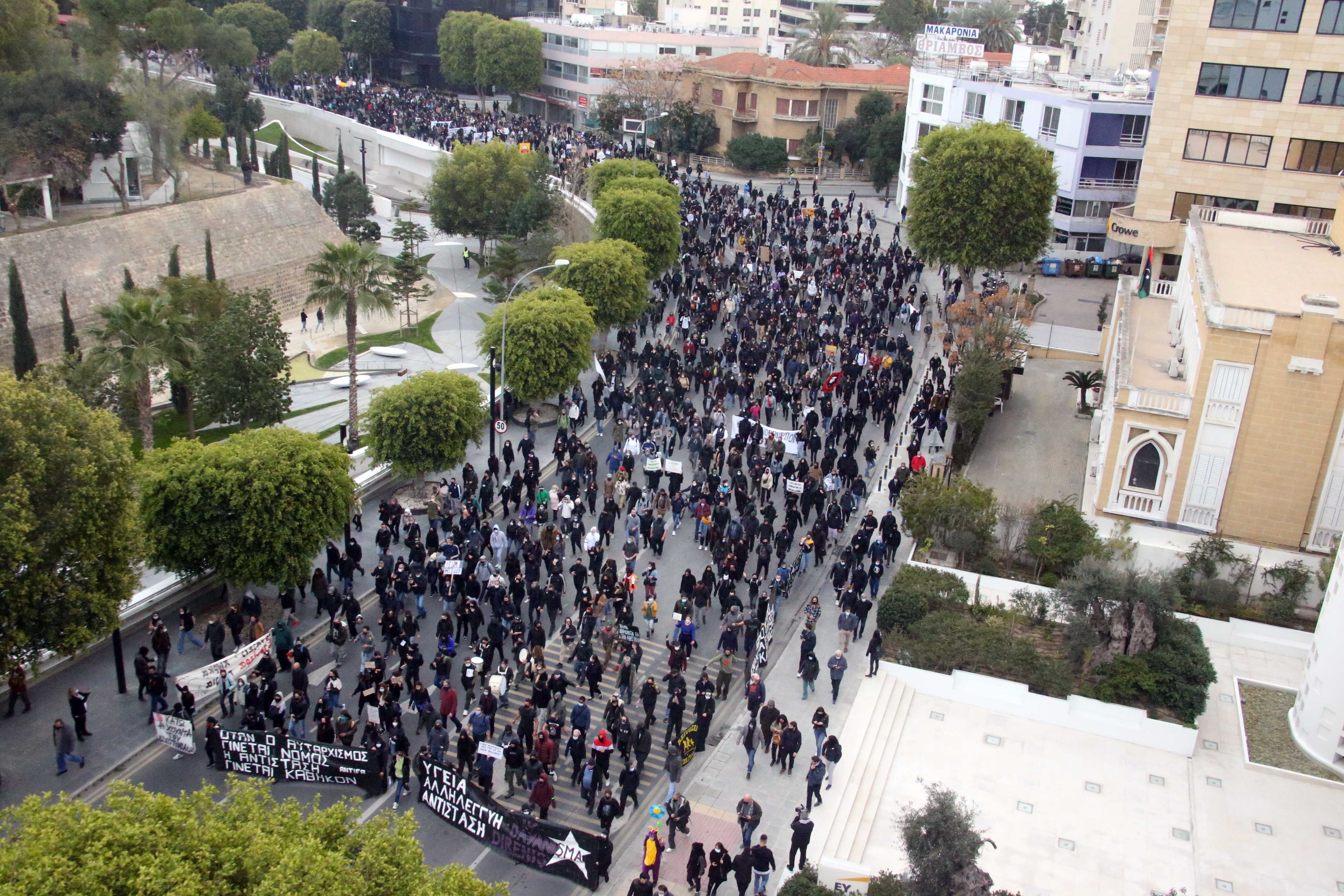Saturday’s eagerly awaited protest march in Nicosia turned out to be a non-event incident-wise in comparison to what took place seven days earlier, even if close to 10 times more people showed up. The protest was peaceful, as the organisers had promised, no troublemakers had infiltrated the ranks of the participants as police had feared and the event passed without any incident.
This was because the policing was much more sensible than on the previous weekend when large numbers of officers in riot gear tried to disperse the crowd by force. On Saturday there was still a heavy police presence but it was discreet, most officers stationed in side-streets and staying out of the way of the people, of all ages, that took part. It was a civilised, well-mannered protest with people wearing face masks and trying to keep a safe distance from each other during the march from Kolokasi park to parliament.
Police claims that their intervention was needed in the first demonstration because of provocations by the protesters sounded much less plausible after Saturday’s event. The reason there was trouble the previous weekend was because the police had orders to disperse the crowd as all participants were violating the decree banning public gatherings and demonstrations. Even the use of excessive force was justified in protecting public health, which has become the excuse for many repressive measures by the state.
The public outcry showed that police force against peaceful demonstrators was one violation of their personal liberty, on the pretext of protecting public health, they were not prepared to tolerate. It was the reason so many more people turned up for Saturday’s demonstration. They were there in defiance of the state’s repressive measures that had gone too far the previous weekend and to show they were not deterred by or afraid of police heavy-handedness. In a way people were not just saying ‘Enough’ to corruption, but also to state repression.
There was not the mildest confrontation on Saturday because the authorities retreated, realising there was a limit to how far the violation of personal liberties could go. Efforts to stop the protest were half-hearted, while a member of the scientific team announced that demonstrations could be held as long as the safety measures were observed. In the space of a week the government changed its tune and the democratic right to protest was given precedence over the illiberal Covid decrees, because of public resistance.
It was a welcome development. The government and the scientific team advising it needed to be jolted out of their authoritarian mindset by people finally offering resistance to the unchecked repression of the last 11 months.






Click here to change your cookie preferences